Autism Spectrum Disorder - Diagnosis and Treatment
Enhancing ASD diagnosis & treatment: Explore early interventions, therapies, & support systems for progress.
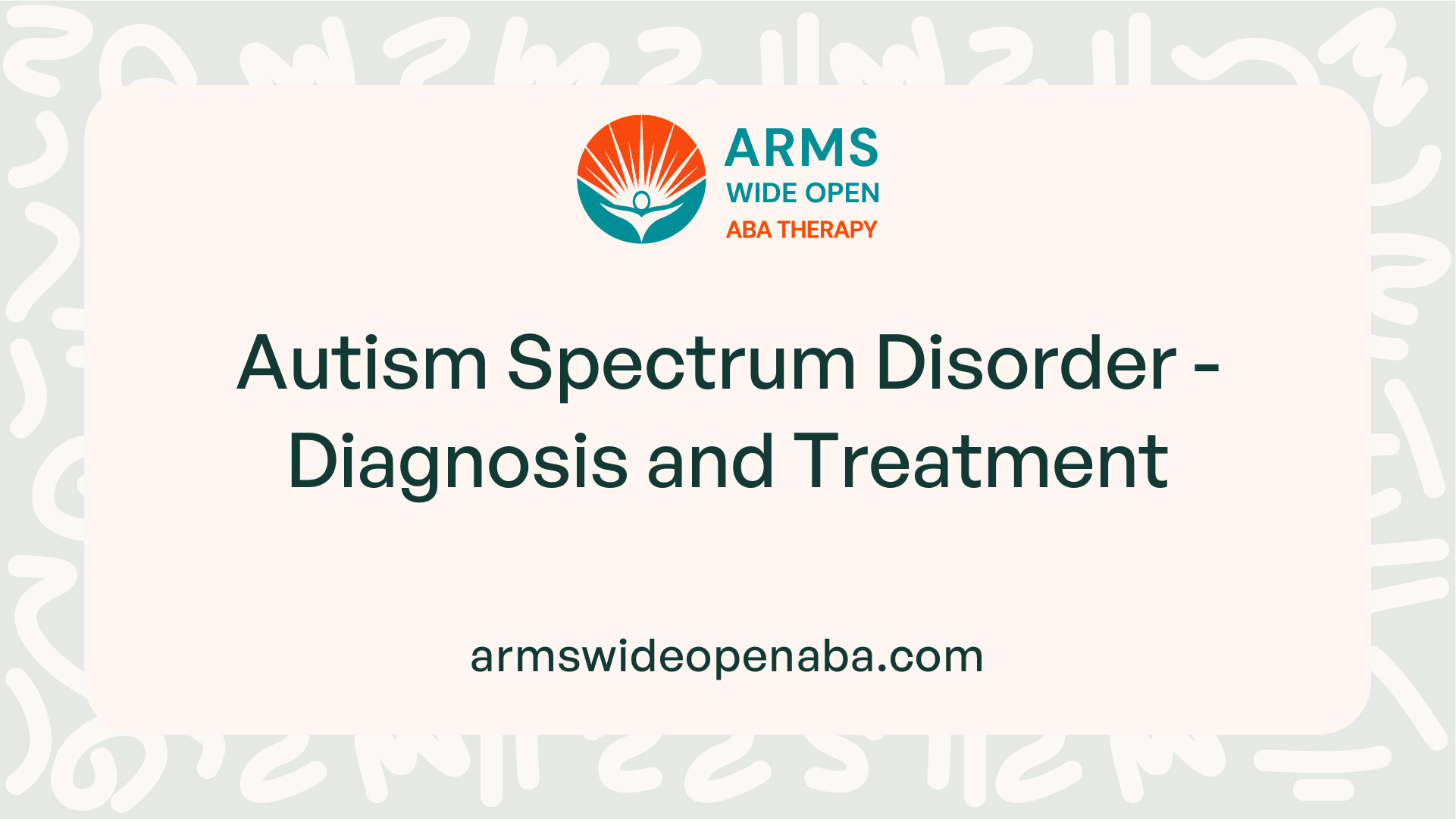
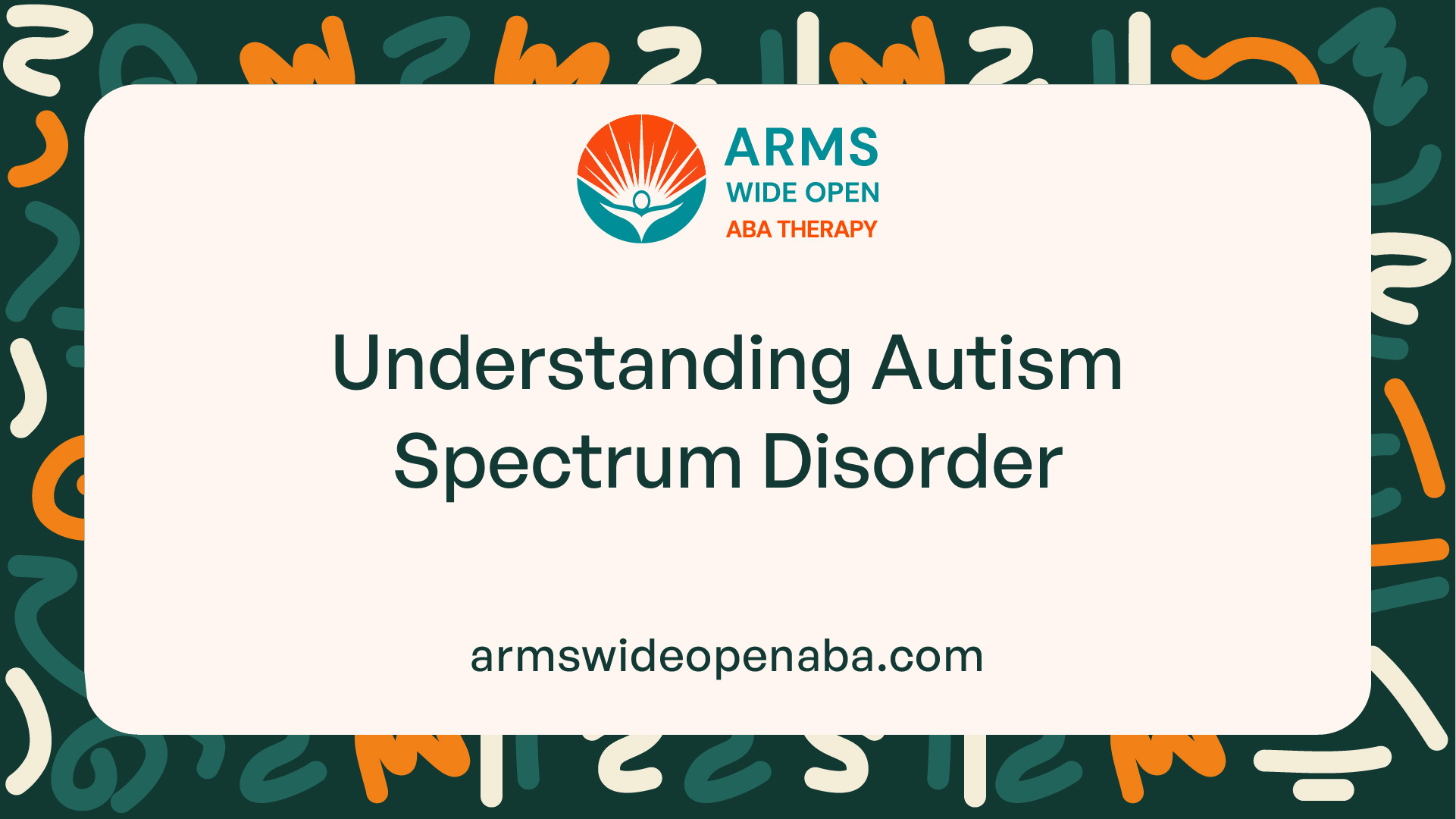
Understanding Autism Spectrum Disorder
Autism Spectrum Disorder (ASD) is a complex neurodevelopmental condition that impacts social interaction, communication, and behavior. Understanding the fundamental aspects of ASD, including its definition and key characteristics, is essential in recognizing and supporting individuals with this condition.
What is Autism Spectrum Disorder (ASD)?
Autism Spectrum Disorder, commonly referred to as ASD, is a diverse range of conditions characterized by challenges in social skills, repetitive behaviors, and communication difficulties. Individuals with ASD may experience a wide spectrum of symptoms and strengths, leading to the term "spectrum" in the disorder's name.
ASD is a lifelong condition that affects how a person perceives and interacts with the world around them. While the exact cause of ASD remains unknown, it is believed to involve a combination of genetic and environmental factors. Early identification and intervention are crucial in promoting the well-being and developmental progress of individuals with ASD.
Characteristics and Symptoms of ASD
The characteristics and symptoms of ASD can vary widely among individuals, contributing to the diverse nature of the disorder. Some common signs and behaviors associated with ASD include:
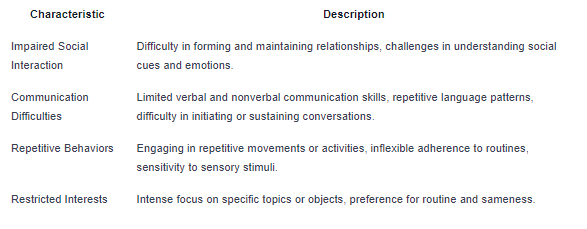
Recognizing these characteristics and symptoms is crucial in the early detection and diagnosis of ASD. By understanding the unique challenges faced by individuals on the autism spectrum, tailored support and interventions can be implemented to enhance their quality of life and foster their development.
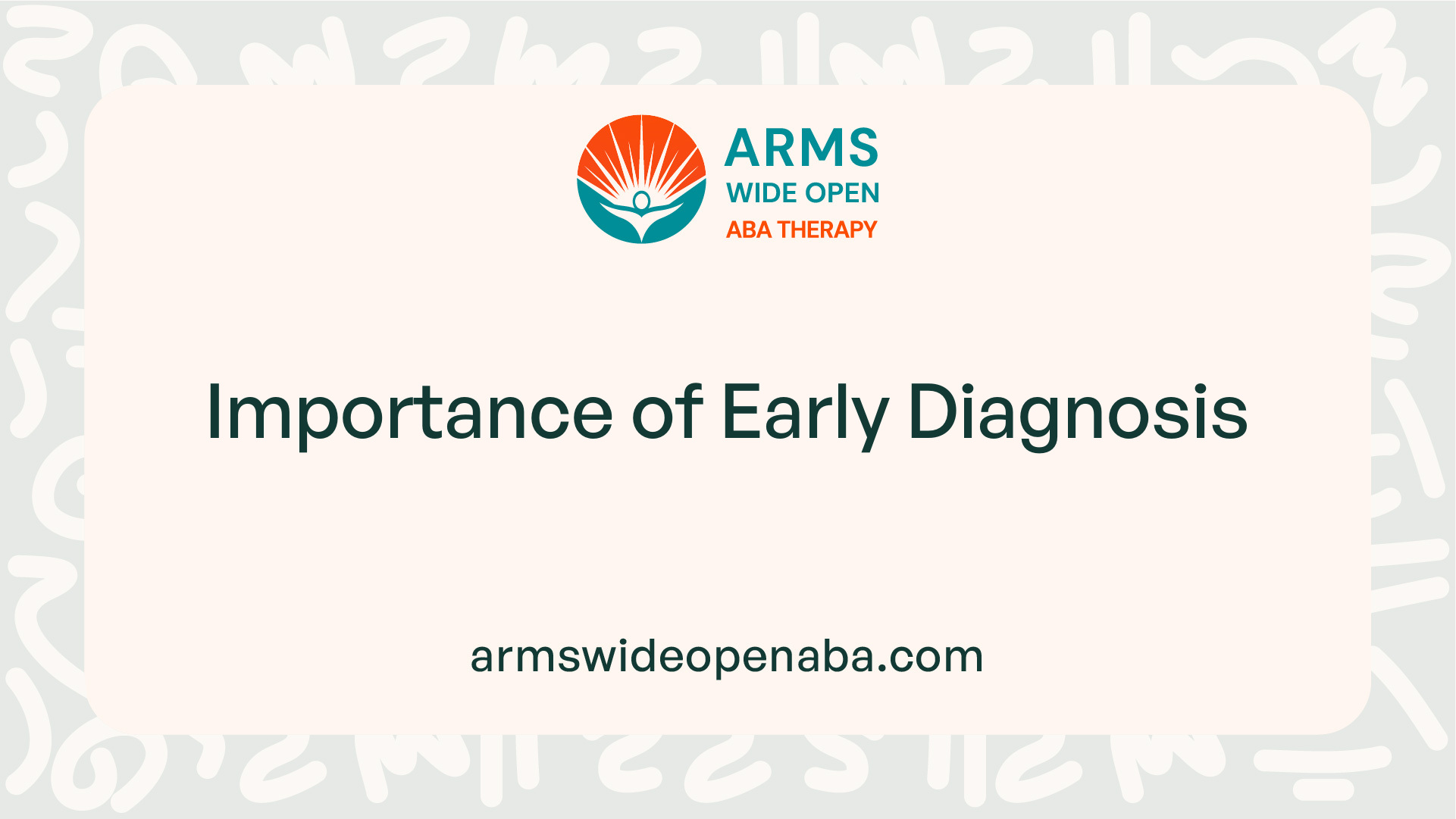
Importance of Early Diagnosis
Recognizing the significance of timely diagnosis in addressing autism spectrum disorder (ASD) is crucial for enhancing outcomes for individuals on the spectrum. Early diagnosis paves the way for early intervention, which can positively impact the development and well-being of individuals with ASD.
Benefits of Early Intervention
Early intervention for ASD offers a myriad of benefits that can significantly improve the quality of life for those affected. By identifying ASD at an early stage, interventions can be tailored to meet the specific needs of each individual. Some key advantages of early intervention include:
Benefits of Early Intervention for ASD
1. Improved Outcomes: Early intervention can lead to better communication and social skills development.
2. Enhanced Learning: Interventions focused on early developmental areas can facilitate improved cognitive and behavioral outcomes.
3. Support for Families: Early diagnosis allows families to access necessary support services and resources to navigate the challenges of ASD.
Challenges in Diagnosing ASD
Despite the importance of early diagnosis, several challenges exist in accurately identifying ASD. The diverse presentation of symptoms and the variability in their intensity across individuals pose obstacles to prompt diagnosis. Some key challenges include:
Challenges in Diagnosing ASD
1. Variability in Symptoms: ASD symptoms can manifest differently in each individual, making it challenging to recognize the disorder promptly.
2. Diagnostic Delays: Limited access to specialized healthcare providers and long waiting periods for assessments can delay the diagnosis of ASD.
3. Co-occurring Conditions: The presence of other co-occurring conditions, such as intellectual disabilities or mental health disorders, can complicate the diagnostic process.
Overcoming these challenges requires an integrated approach involving healthcare professionals, educators, and caregivers to ensure early and accurate identification of ASD. By addressing these obstacles, individuals with ASD can receive timely support and interventions tailored to their specific needs, fostering optimal outcomes and well-being.
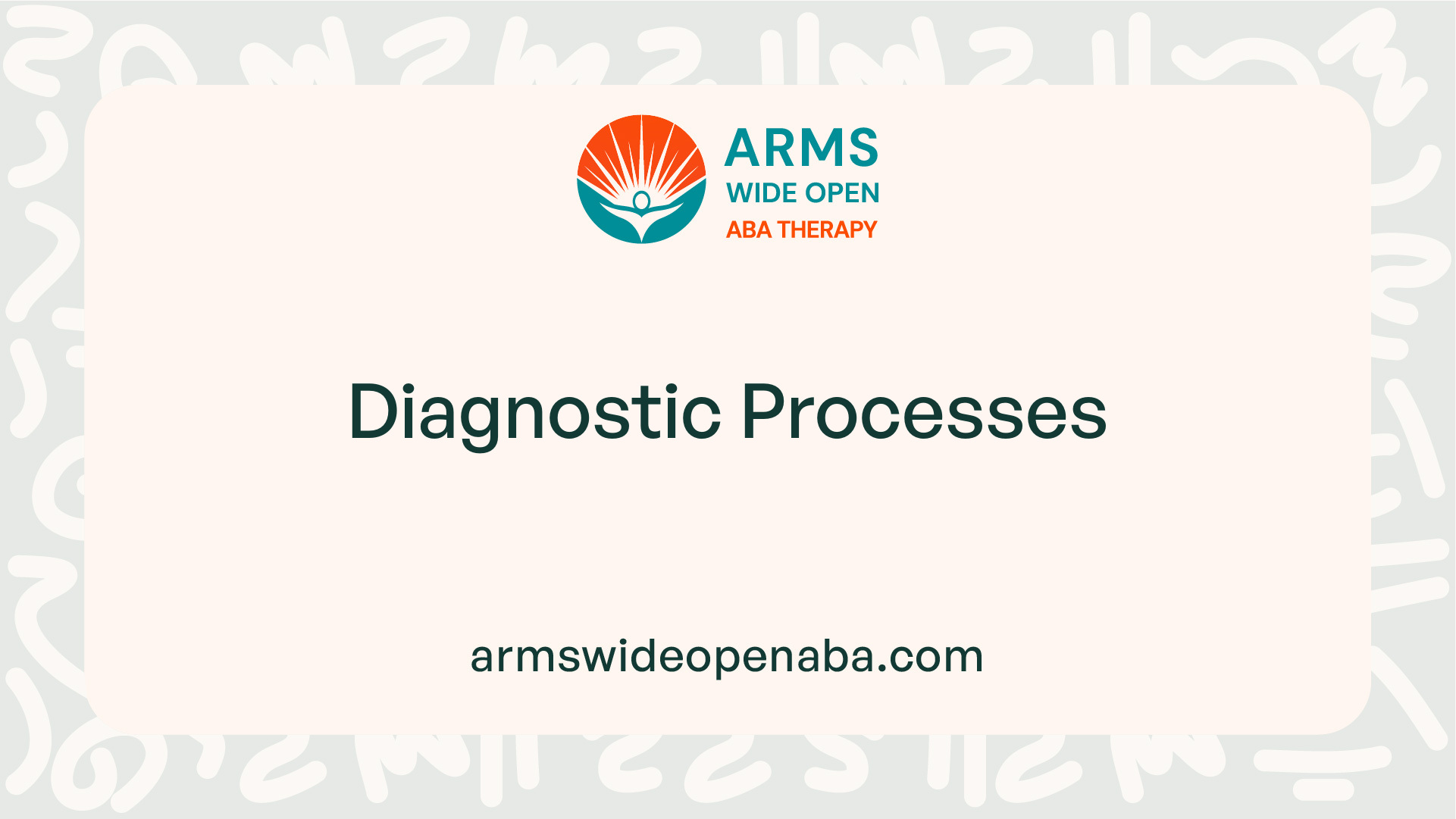
Diagnostic Processes
When it comes to Autism Spectrum Disorder (ASD), timely and accurate diagnosis plays a critical role in providing appropriate interventions and support. The diagnostic processes for ASD involve utilizing screening tools and conducting diagnostic assessments to identify and evaluate the presence of ASD in individuals.
Screening Tools for ASD
Screening tools are preliminary assessments used to evaluate the likelihood of ASD in individuals. These tools are designed to identify early signs and symptoms of ASD, allowing for further evaluation by professionals. Some commonly utilized screening tools for ASD include the Modified Checklist for Autism in Toddlers (M-CHAT) and the Autism Diagnostic Observation Schedule (ADOS).

It is important to note that screening tools are not diagnostic in nature but serve as initial indicators that help guide further evaluations by healthcare providers and specialists.
Diagnostic Assessments
Diagnostic assessments are comprehensive evaluations conducted by healthcare professionals to confirm the presence of ASD in individuals. These assessments involve detailed observations, interviews, and evaluations of the individual's behavior, communication, and social interactions. The diagnostic process may also include input from caregivers and other relevant individuals to provide a holistic assessment.
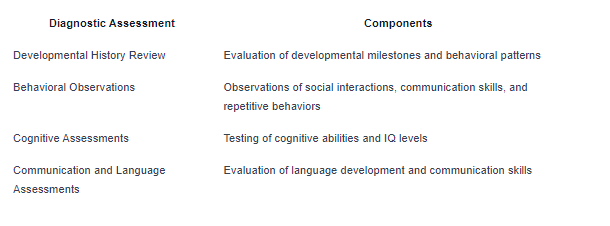
The results of diagnostic assessments help in formulating individualized treatment plans and interventions tailored to the specific needs of individuals with ASD. Early and accurate diagnosis through the use of screening tools and diagnostic assessments is crucial for initiating timely interventions and maximizing the potential for positive outcomes in individuals with ASD.
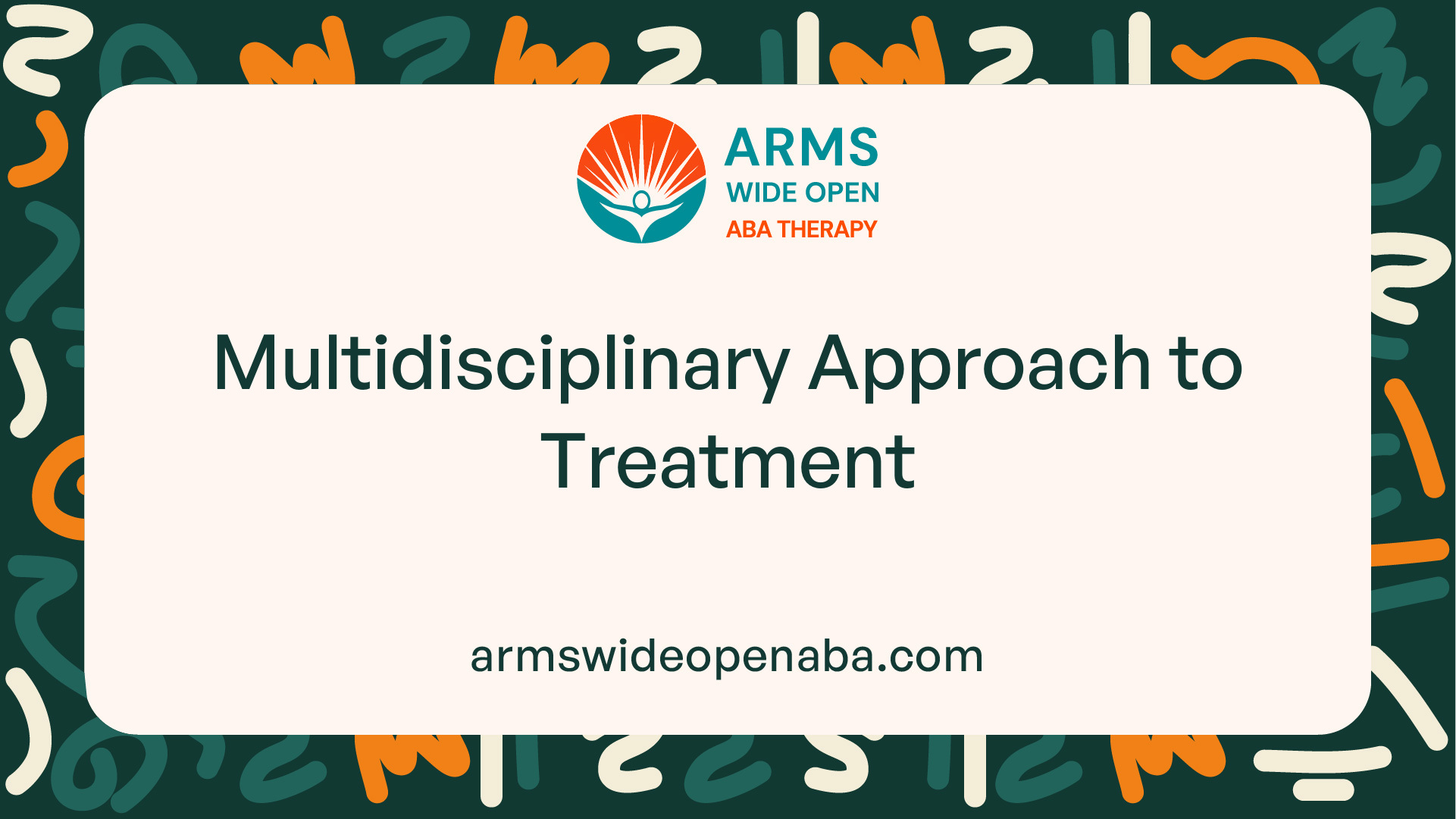
Multidisciplinary Approach to Treatment
In the comprehensive treatment of autism spectrum disorder (ASD), a multidisciplinary approach is often recommended to address the diverse needs of individuals with ASD. This approach typically involves a combination of behavioral therapies, speech and language therapy, and occupational therapy.
Behavioral Therapies
Behavioral therapies play a vital role in the treatment of ASD by focusing on improving communication skills, social interactions, and behavior management. These therapies are tailored to the individual's specific needs and may include applied behavior analysis (ABA), cognitive-behavioral therapy, and social skills training.

Speech and Language Therapy
Speech and language therapy is essential for individuals with ASD to improve their communication abilities, including speech articulation, language development, and social communication skills. Speech therapists work closely with individuals to enhance their expressive and receptive language skills, leading to improved social interactions and overall quality of life.

Occupational Therapy
Occupational therapy aims to enhance the individual's ability to participate in daily activities and improve their quality of life. For individuals with ASD, occupational therapists focus on developing skills related to self-care, sensory processing, fine motor coordination, and adaptive behaviors. By addressing these areas, occupational therapy helps individuals with ASD function more independently and effectively in various environments.
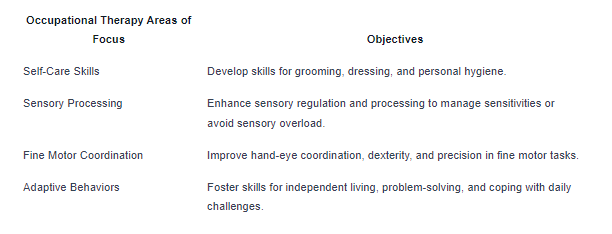
The integration of behavioral therapies, speech and language therapy, and occupational therapy in the treatment plan for individuals with ASD underscores the importance of addressing the diverse needs associated with the disorder. By incorporating these multidisciplinary approaches, individuals with ASD can receive comprehensive care that targets their specific challenges and empowers them to reach their full potential.
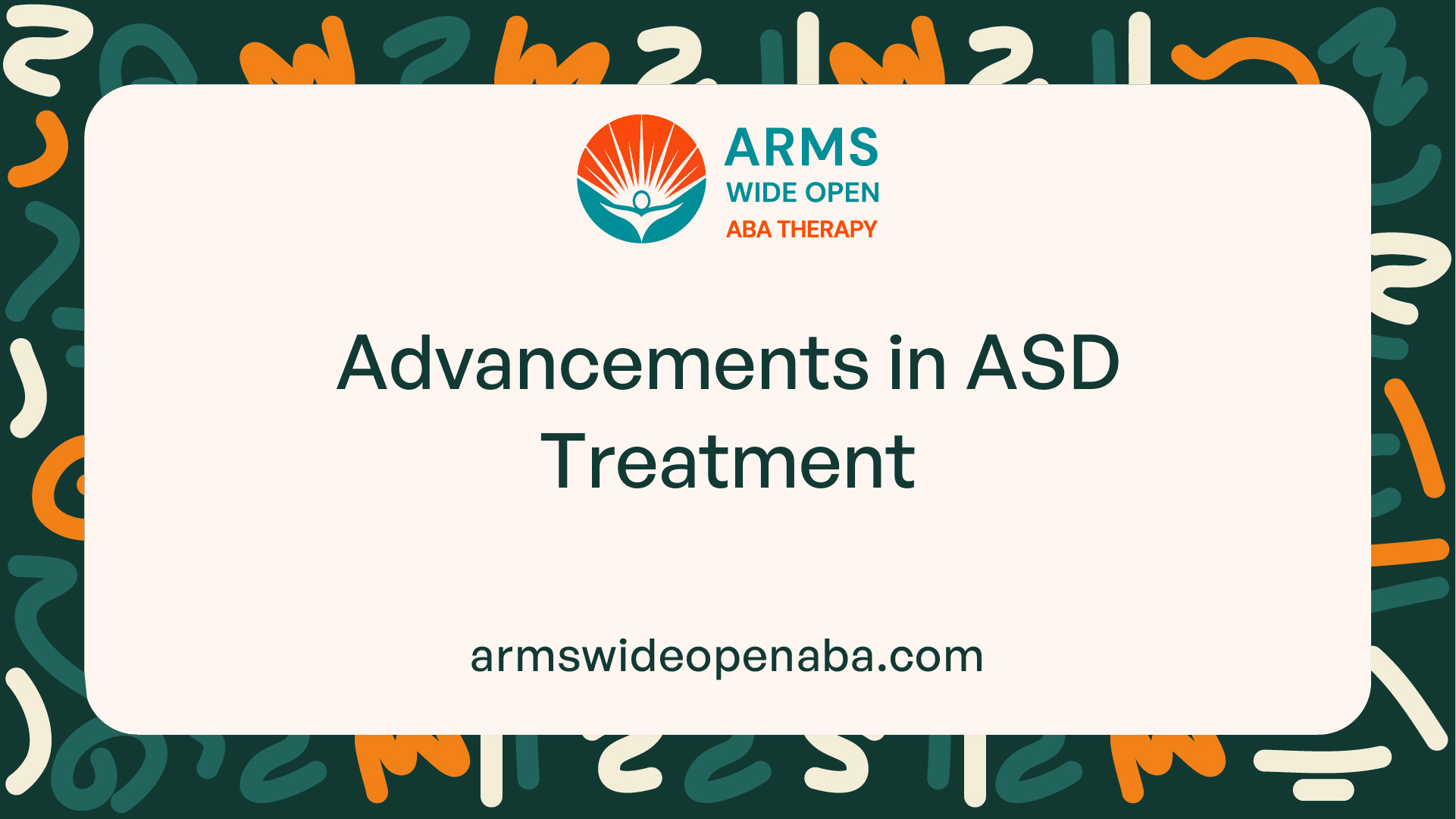
Advancements in ASD Treatment
As research and understanding of Autism Spectrum Disorder (ASD) continue to evolve, advancements in treatment options have expanded, offering new approaches to support individuals with ASD. Two significant avenues of development in ASD treatment include medication options and innovative therapies.
Medication Options
Medication can play a role in managing certain symptoms associated with ASD, such as anxiety, depression, hyperactivity, and aggressive behaviors. It is important to note that medication is not a cure for ASD but can be used to target specific symptoms that may impact an individual's quality of life.
Below are some common types of medication used in the management of ASD:
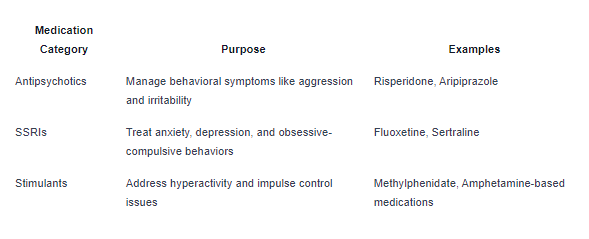
It is crucial for individuals with ASD to work closely with healthcare professionals to determine the appropriate medication regimen, considering the potential benefits and risks associated with each medication.
Innovative Therapies
Innovative therapies offer alternative or complementary approaches to traditional treatments for ASD. These therapies aim to address the core symptoms of ASD and improve overall quality of life for individuals with the condition. While not all innovative therapies have scientific consensus on their effectiveness, many individuals and families have reported positive outcomes.
Some examples of innovative therapies for ASD include:
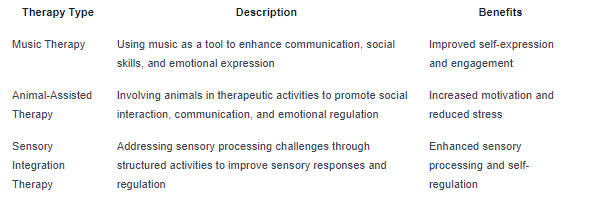
Before exploring innovative therapies, it is important for individuals and families to consult with healthcare providers and therapists to ensure that these interventions are safe and suitable for the individual with ASD.
As research and clinical practice continue to advance, individuals with ASD and their families have access to a wider range of treatment options to address the unique needs and challenges associated with the disorder. By staying informed about the latest advancements in ASD treatment, individuals can make well-informed decisions to support their journey towards improved quality of life and well-being.
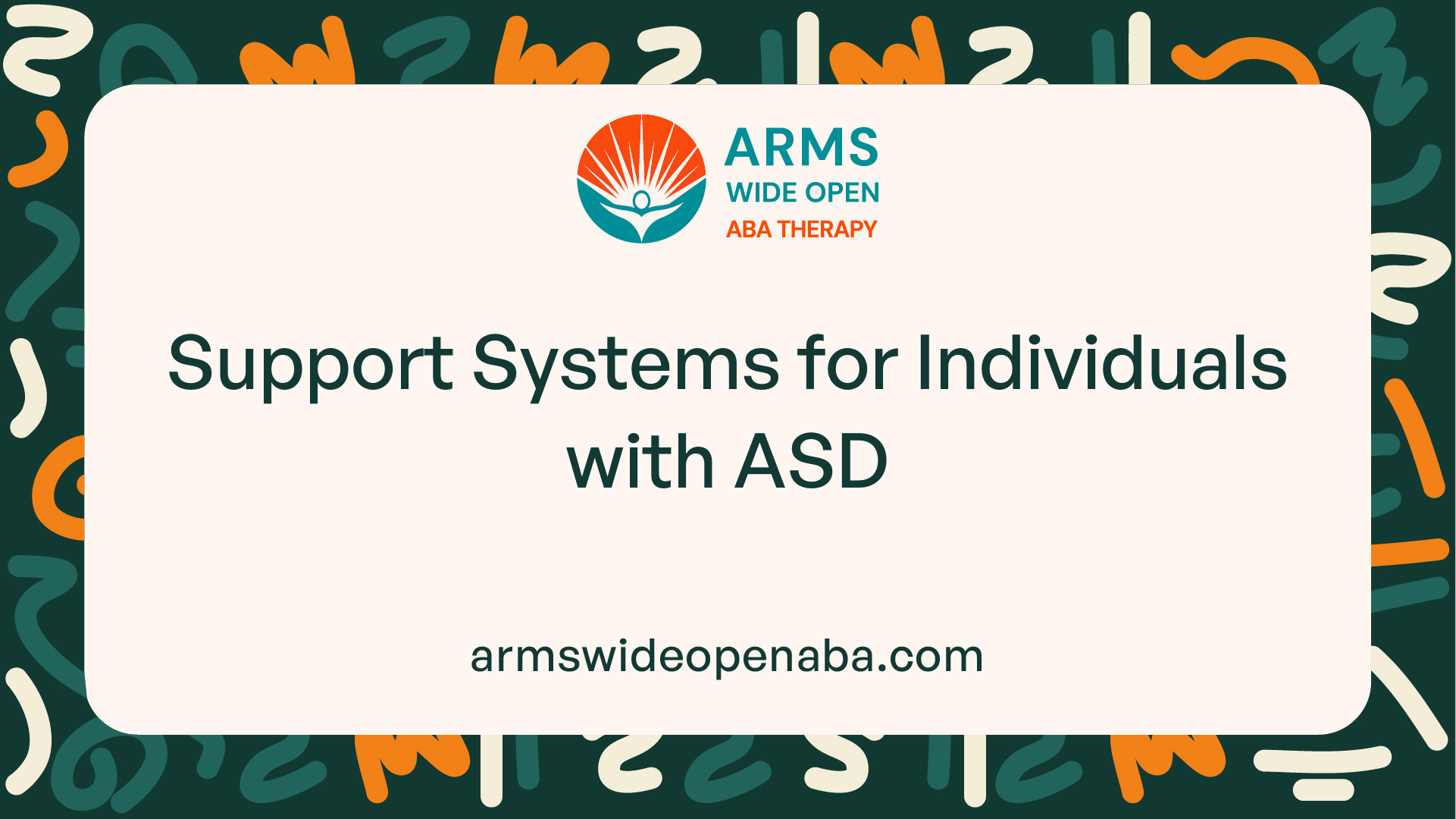
Support Systems for Individuals with ASD
Individuals with Autism Spectrum Disorder (ASD) benefit greatly from a supportive environment that caters to their unique needs. Various support systems play a crucial role in enhancing the quality of life for individuals with ASD and their families. This section explores key support systems, including community resources, parent and caregiver support, and educational programs.
Community Resources
Community resources offer a valuable network of support for individuals with ASD and their families. These resources provide access to a variety of services, including therapy programs, social skills development activities, and support groups. By engaging with community resources, individuals with ASD can receive specialized care and assistance that promote their well-being and integration into society.

Parent and Caregiver Support
Parents and caregivers of individuals with ASD often face unique challenges that require specialized support. Parent and caregiver support programs offer guidance, education, and emotional assistance to help navigate the complexities of caring for a loved one with ASD. These programs empower parents and caregivers with the tools and resources needed to provide the best possible care and support for their child.

Educational Programs
Educational programs tailored to the specific needs of individuals with ASD are essential for their growth and development. These programs focus on providing a supportive learning environment that accommodates the unique learning styles and abilities of individuals on the autism spectrum. Educational programs for individuals with ASD often incorporate specialized teaching methods, individualized learning plans, and adaptive technologies to promote academic and social success.

By leveraging community resources, parent and caregiver support programs, and specialized educational programs, individuals with ASD can receive comprehensive support that addresses their diverse needs and empowers them to thrive in all aspects of life.
Sources
https://www.ncbi.nlm.nih.gov/books/NBK573609/
https://www.cdc.gov/autism/hcp/diagnosis/index.html
Similar articles
We’re here to help you

Our team is here to assist you in this process. Contact us for any assistance.
it’s easy to apply
We Accept Most Insurances
Our in-network insurance partnerships make ABA therapy more accessible to families throughout our service areas.







Our Insurance Process
We'll request your insurance details to help us verify your plan's coverage for ABA therapy. Once we've received this information, we'll walk you through your benefits, including copayments, deductibles and out-of-pocket maximums, so you know what to expect in advance.
Our team will then handle the preauthorization and all the necessary paperwork.
.svg)





















.jpeg)


































.jpeg)




.jpeg)







.jpeg)











.jpeg)
















